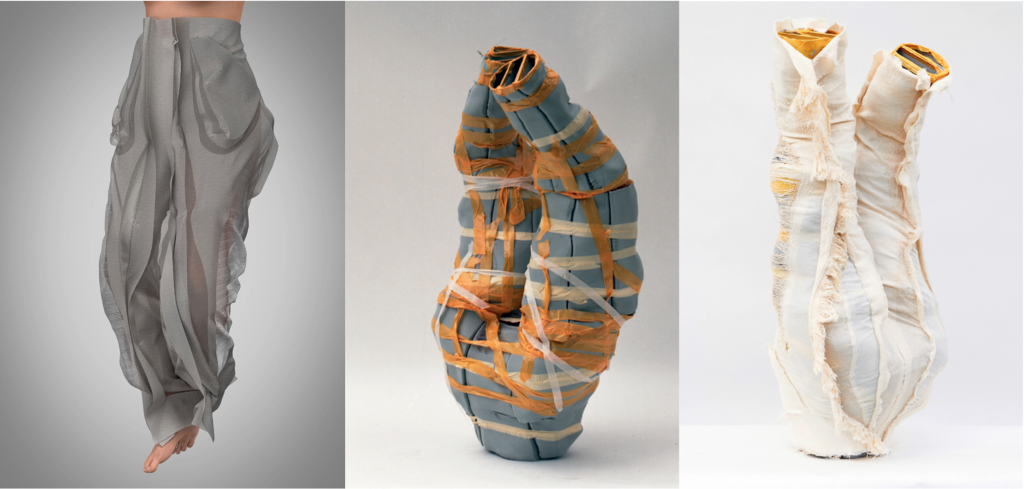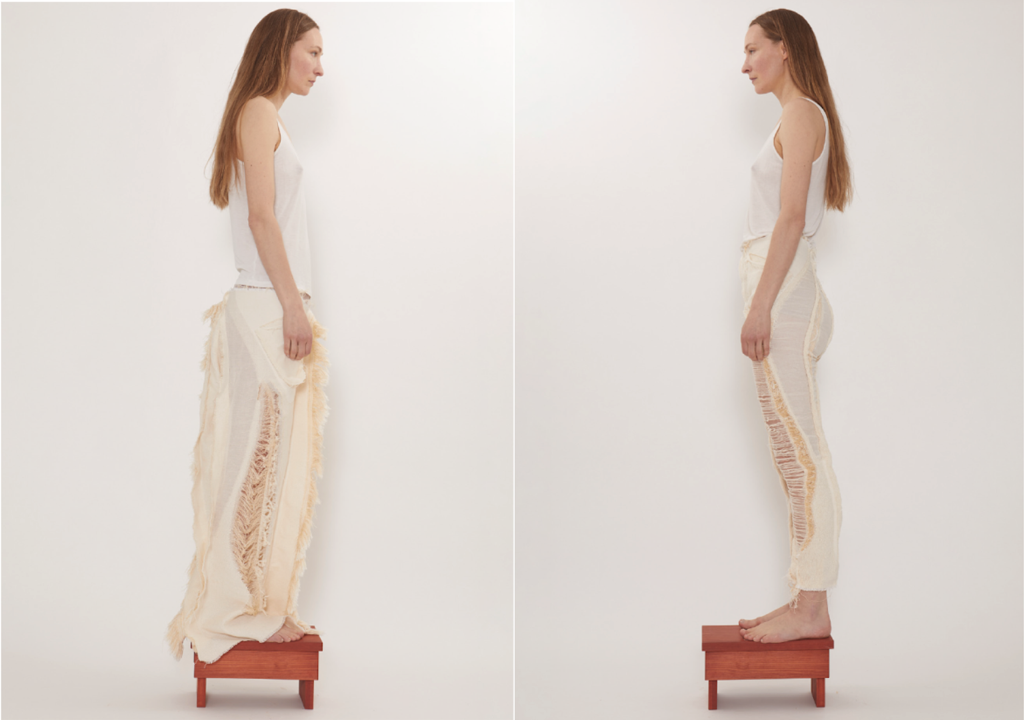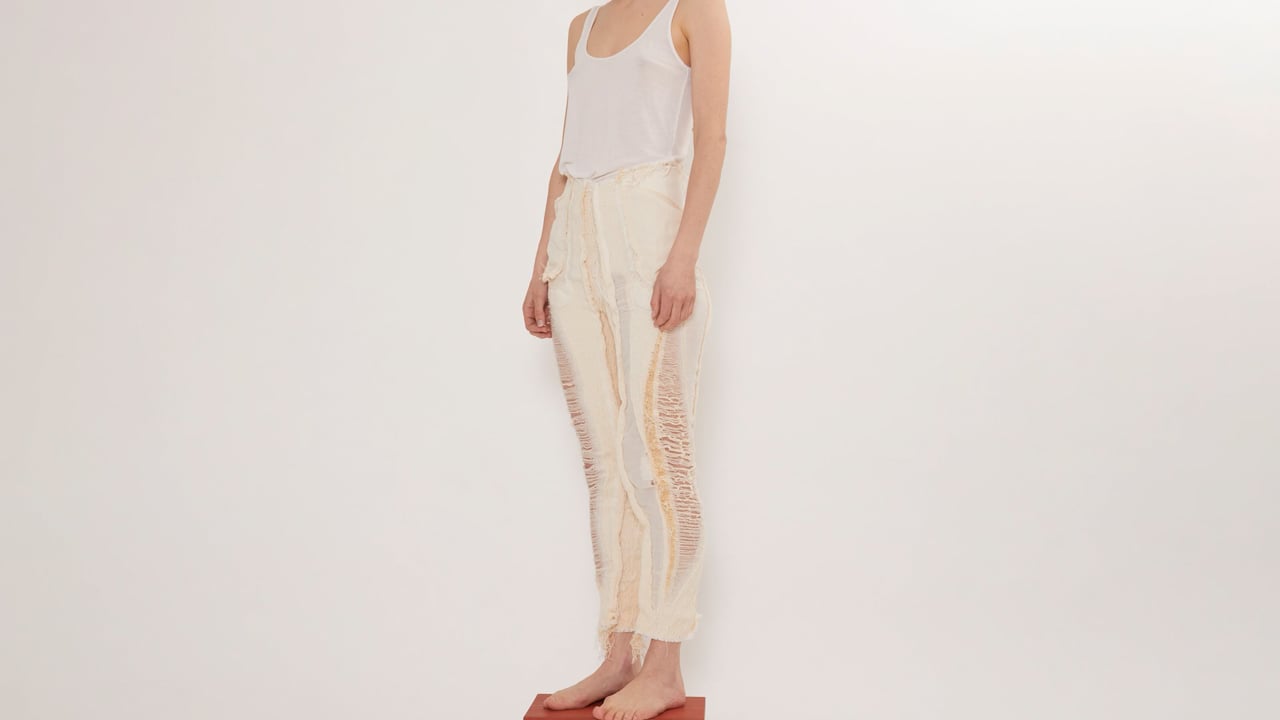The design of textile-based forms such as garments is mired in multiple layers of constraining histories, methods, technologies, and industries. These all are inherently centred on valuing other things than the environment we all rely on and are deeply entangled with. As a result, waste is an inbuilt component of the garment industry. It is imperative that designers find new ways to eliminate waste from the design, production and use of garments. Novel methods that simultaneously construct textile and 3D-forms (such as whole garment knitting) are a key solution. However 60% of the garments we wear are not knitted, they are woven, and there are few such solutions for these garments.
The Critical Textile Topologies team is investigating how to embed time as a design element when developing textile-forms in order to extend the esthetics and life-cycle of, in this case, trousers. The starting point is an analog form exploration of what trousers fundamentally are. Then, through a digital design and sampling process, trousers are woven on a standard digital jacquard loom. By utilising heat reactive yarn the 3D-form can be manipulated at multiple stages of production and lifetime of use.
This transforms garment making from a labor intensive process to an almost fully automated one, thereby front loading or reversing the “craft” of making to the design stage,
Our approach reveals different relationships between objects and actors, resulting in a holistic interaction between materialities driven by a post anthropocentric perspective that deeply embeds Braidottis notion of ‘an ethics based on a new sense of inter-connectedness between all matter’.
Critical Textile Topologies challenges us to rethink how we design, make and use things, and presents outcomes that celebrate opportunities to ‘materialise’ a hopeful future.
Remarks
In collaboration with the University of Boras, Swedish School of Textiles






